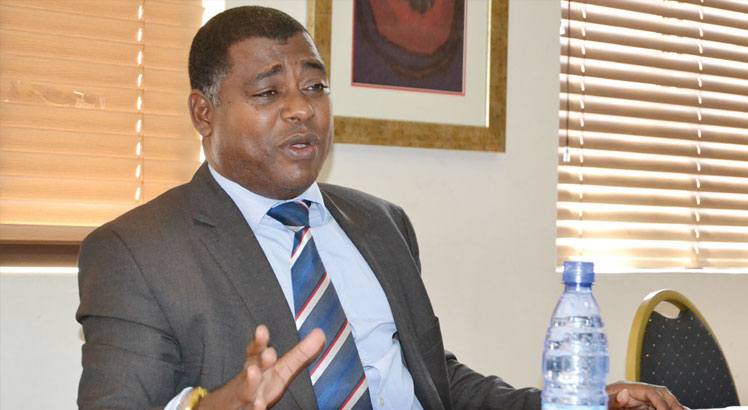MPs for review of tax incentives to multinationals
The Budget and Finance Committee of Parliament says the country is losing potential tax revenue due to tax incentives extended to multinational companies operating in Malawi and has since called for a review of the scheme.
The members of Parliament ( M Ps ) spoke randomly during a tax justice orientation workshop at Mponela in Dowa on Friday organised by ActionAid Malawi (AAM) in reaction to revelations that the country is losing an estimated $87 million (about K71 billion) annually as a result of tax incentives to multinational corporations (MNCs).

The figure is based on the 2015/16 study by PricewaterhouseCoopers (PwC) for the United Nations Development Programme (UNDP) which estimated Malawi’s tax incentives losses for 2015/16 at 1.6 percent of gross domestic product (GDP) then.
In 2016, Malawi’s GDP stood at $5.44 billion and the potential tax loss was estimated at $87.04 million.
But with the country’s GDP revised upwards to $10.9 billion following the rebasing exercise by National Statistical Office (NSO), at 1.6 percent, the tax loss could roughly be estimated at $174.4 million (about K143 billion) per year in 2021.
In his contribution, Mangochi Monkey Bay MP Ralph Jooma (Democratic Progressive Party-DPP) blamed Malawi’s continued loss of potential tax revenue to transfer pricing by related companies.

Transfer pricing allows for the establishment of prices for the goods and services exchanged between subsidiaries, affiliates or commonly controlled companies that are part of the same larger enterprise.
Said Jooma: “One area where we are losing out [a lot of revenue] is transfer pricing. We can deal with the tax treaties but if we aim to generate more revenue, we should look at transfer pricing. MRA [Malawi Revenue Authority] should be able to determine prices of goods that companies are selling to their sister companies out there.”
In her contribution, Budget and Finance Committee of Parliament chairperson Gladys Ganda, who is also Nsanje Lalanje MP (DPP), said her committee was concerned with the secrecy and lack of transparency and accountability surrounding tax incentives to foreign companies.
She said the practice is proving costly to taxpayers as more money is being lost in the process.
Ganda said following the orientation meeting, members of her committee now have an understanding of tax justice, public resource mobilisation and public services financing while also having a clear understanding of Malawi’s status on progressive taxation.
She said the committee will officially write Minister of Finance Felix Mlusu on some of the critical issues raised during the meeting to seek redress.
In her presentation, AAM head of business development, grant m a n a g e m e n t a n d communications, Yandura Chipeta, informed the meeting that for six years, Malawi lost an estimated $43 million due to tax incentives provided to Paladin Africa, which used to operate Kayelekera Uranium Mine in Karonga.
She said: “Just one company, Paladin, cut its tax bills by $43 million in Malawi as a result of tax breaks. In one year, such money could have paid for either HIV and Aids treatment for 431 000 people or recruit 17 000 nurses or 39 000 teachers.”
From a global point of view, Chipeta said through its study, ActionAid found that $138 billion is lost to corporate income tax breaks given by low-income countries, including Malawi.
She lamented that Malawi has dangled a lot of tax incentives through tax treaties or double tax agreements (DTAs) with other countries, adding that such treaties are taking away more tax rights from the lower income country as money flows untaxed from Malawi to rich countries.
Chipeta said tax treaties continue to facilitate tax avoidance, and have been
country’s NDCs are proving useful in accelerating efforts in the fight against climate change. climate actions in the used in the most well-known cases of aggressive tax planning, such as in Google and Amazon’s tax schemes.
Amo n g o t h e r s , s h e recommended to government to ensure eliminating worst kinds of incentives, use incentives only after public cost-benefit analysis which includes impact on poor and vulnerable and also ensure incentives are rooted in legislation and available to all qualifying, domestic and foreign.
An official from Ministry of Finance’s Revenue Policy Department, Leonard Mushani, who presented on Strides and Gaps in Malawi’s Tax Laws: The Case of Double Taxation, said tax treaties and incentives help attract foreign investors as they provide assurance on tax treatment.
On the other hand, he admitted that if not well negotiated, the incentives may result in revenue loss and ‘treaty shopping’ where investors take advantage of certain clauses in the agreement to exploit fully the benefits of a tax treaty.
But in an interview yesterday, Civil Society Network on Climate Change national coordinator Julius Ng’oma said Malawi is still lagging behind in addressing climate change due to several factors, including low funding towards addressing climate change and adaptation.
He said: “We are not being very responsible for mitigating effects of climate change, especially in emitting greenhouse gasses. But that does not stop us from doing our part.”
In recent years, Malawi and many countries across the globe have been feeling the impact of climate change and continue to face frequent and intense droughts, storms, heatwaves and rising sea levels.
Malawi’s funding to mitigate climate change over the years has been minimal. In the K1.9 trillion 2020/21 National Budget, the Ministry of Forestry and Natural Resources was allocated K404 million.
United Nations Secretary General Antonio Guterres has warned that the time to act on environmental management is now “as the door on climate action is closing”.
During the Conference of Parties (CoP) to the UN Framework Convention on Climate Change a decade ago, rich nations pledged donate $100 billion to help poor countries with less emissions such as Malawi to invest in environmentally-friendly energy sources such as solar, wind and hydro electricity. The poor countries have been on the receiving end of massive emissions from industrialised economies. From Dubai, Chakwera will join other world leaders in Glasgow, Scotland for CoP26. He is expected to speak on behalf of least developed countries who are lobbying for help.





